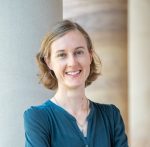
Susan Li
Peptide Chief Scientist, CMC development and manufacturing, Asymchem Group
Forced Degradation Study of Peptides
Abstract
Peptides are a-amino acid polymers composed of 40 or fewer amino acids. Therapeutic peptides are less immunogenic and offering greater safety, selectivity and specificity. By understanding the degradation behavior of peptides, safer and more effective peptide drugs can be designed. Degradation studies are conducted including a selection of stress conditions, degradation products formed, and different peptide degradation mechanisms. A case study on the degradation profile of existing peptide drugs is presented as well.
Bio
Susan Li holds a PhD in Polymer Chemistry and Physics from Nankai University in China. She completed a postdoctoral fellowship at the University of Texas Southwestern Medical Center (UTSW) in the United States. Before joining Asymchem, she previously worked at PolyPeptide Group where she focused on CMC development for peptide APIs. She also served as a Senior Scientist in the Department of Macromolecular Life Sciences and Cancer Biology at the Stanford Research Institute (SRI), leading efforts to establish a peptide-targeted drug platform for cancer treatment and diagnosis. In 2019, Susan became the Director of Peptide R&D at Sinopep Biopharmaceutical Co., Ltd. in China, where she led the development of peptide APIs, including Semaglutide and Desmopressin. Under her leadership, the DMFs for these compounds were successfully completed and found to meet FDA standards. Currently, Susan works as the Peptide Chief Scientist at Asymchem Group, overseeing peptide CMC development and manufacturing.








